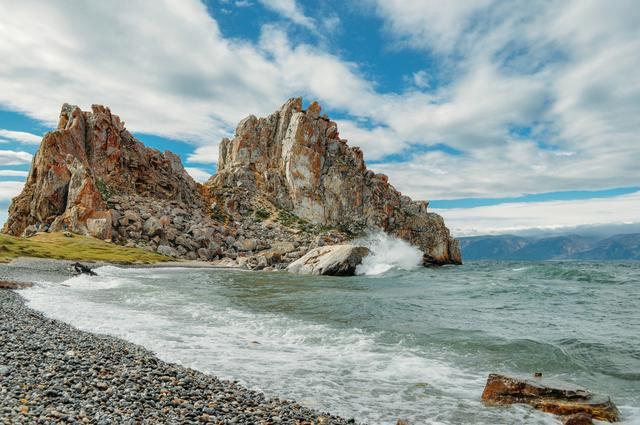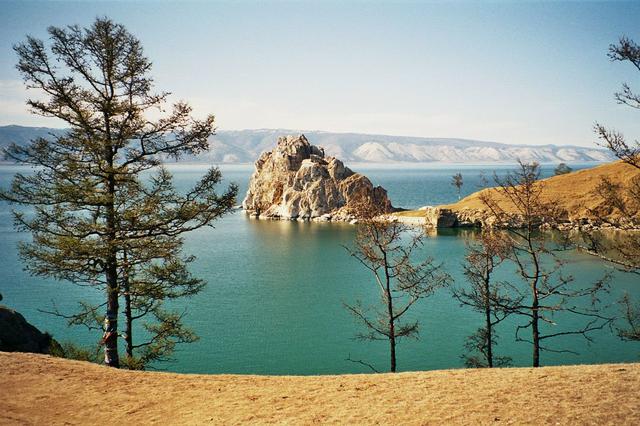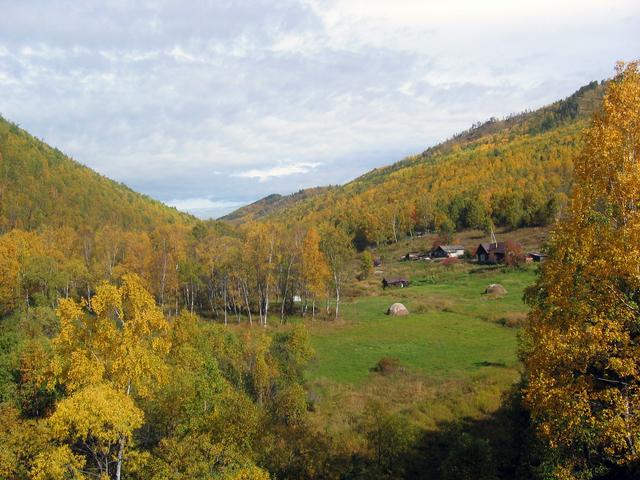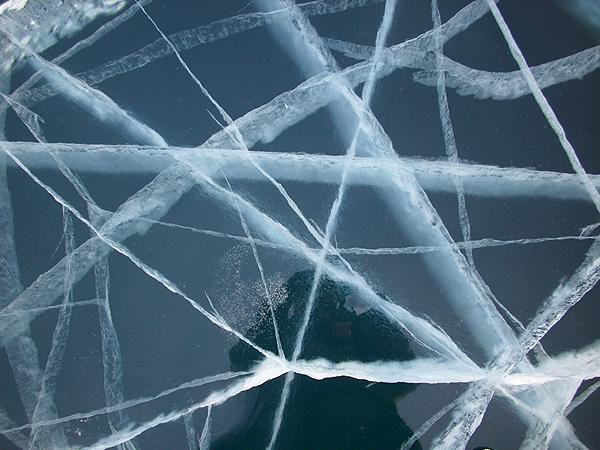

Lake Baikal(Russian: Байка́л bigh-KAHL) is a lake in Eastern Siberia, Russia. It is the biggest and deepest freshwater lake in the world, and a .
 The lake is located in Eastern Siberia, between Irkutsk Oblast to the northwest and Buryatia to the southeast. It is the planet's deepest (1637m) and oldest lake, as well as its largest body of freshwater by volume, containing over one fifth of the world's supply. The origins of the name are unknown, but several hypotheses are these : deep water (Yakut), rich lake (Turkic), rich fire (Mongolian), northern sea (Chinese). Russians sometimes call the lake Baikal sea because of its size.
The lake is located in Eastern Siberia, between Irkutsk Oblast to the northwest and Buryatia to the southeast. It is the planet's deepest (1637m) and oldest lake, as well as its largest body of freshwater by volume, containing over one fifth of the world's supply. The origins of the name are unknown, but several hypotheses are these : deep water (Yakut), rich lake (Turkic), rich fire (Mongolian), northern sea (Chinese). Russians sometimes call the lake Baikal sea because of its size.
The lake's geological formation started around 20-25 million years ago in the Mesozoic era and even nowadays its rift is continuing to widen 2cm a year. First mention of its name appeared in Chinese writings in 110 year B.C. as "Beihai" (Northern Sea). Since then several cultures have been changing on its shores when in the XVIII century Buryat nationality came into being. The Russian sources first mention Baikal in 1640. The further centuries are the time of exploration and description by Russian Cossacks and the Church till first scientific expedition in 1723. On 13, October, 1905 the Circum-Baikal Railway is opened. In 1916 Barguzinsky Nature Reserve is organized. 1990 is the year when wind-surfers from Russia, Austria and Czechoslovakia first cross the widest place of the lake. In 1991 the deepest spot on the lake's bottom is reached. 1997 and the Baikal is a part of UNESCO Heritage. The vessel "Sevan" begins cruise tours in 2003.

Baikal mountains surrounding the valley and the lake consist of a few ranges. In the west there are the Baikal Mountains, in the east the Zabaikalskie Mountains. The Angara River is the only outflow of Lake Baikal. The ranges, rivers and valleys are tourist attractions of their own.
- Baikal Seal
Baikal Seal
The water mass is a key factor to the climate of the lake's banks. Winters are often milder, summers are chillier. Spring-time is late 10-15 days than the outer regions and fall is rather long. The area is distinctive for sunshine longevity which is record-high for the of whole Russia. Specific traits are added to the climate of the Baikal by winds: barguzin, sarma, verkhovik, kultuk. It is a common thinking that the Baikal is best for visit in July, when temperatures and winds reach favorable condition. The water in summer is cold, normally +8..+9C and can reach +15C in bays. It's so pellucid that one can see the bottom 40m down.
- Olkhon. The largest island on the lake.
In Irkutsk Oblast (west of the lake)
- Vitimsky Nature Reserve
- Baikalo-Lensky Reserve
In Buryatia (east of the lake)
- Baikalsky Nature Reserve
- Barguzinsky Nature Reserve
- Dzherginsky Nature Reserve
Take part in yearly cross-country six-day race TransBaikal-20xx in July. Hovering and the dislevello it starts in Buguldeyka village takes two-days turn to Olkhon and ends in Yelantsy down south. In 2011 the competition begins on 16, July. Registration of cycle teams until 31, May. .
- Frolikha Adventure Coastline Track, as part of the future Great Baikal Trail.
Souvenirs are sold near the omul sellers (see below), and tend to be cheaper than in other Russian cities. There are several boats at the main dock who take on tourists when not fishing. The prices are negotiable, try to find other tourists who want to ride and get cheaper prices by being in a large group. Sometimes a kid with broken English acts as an intermediary for the price haggling.
The smoked omul sold by several fish sellers on the edge of the lake is wonderful, and there is a restaurant on the lake's edge with good fish, along with several bars and small groceries. But in 2018, it was forbidden to catch during spawning because the population had declined, so you will not find omul.
Everything in Listvyanka is within walking distance, including a small post office.
Baikal water is drinkable and almost distilled as the amount of mineral salts is infinitesimal.
Irkutsk is the biggest city nearby, but the BAM and the Trans-Siberian can take you from one side of the country to the other.
